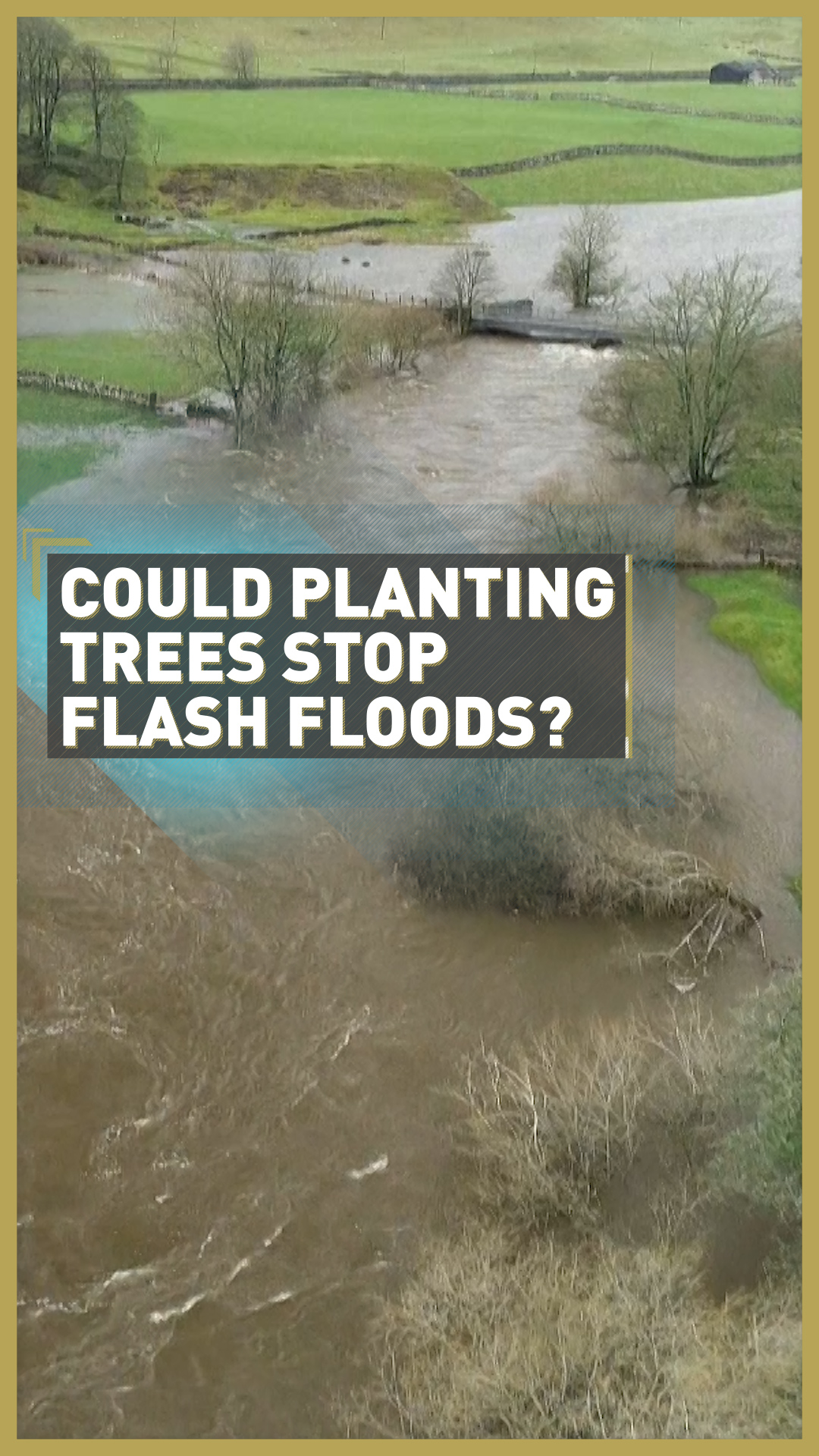00:43

Planting new woodlands in upland areas could help bring an end to flash flooding in the UK within 15 years, according to a new study published by the University of Plymouth.
The UK is just one of several European countries to have been hit by serious flooding in recent years, prompting research into how trees could be used to absorb rainwater.
In February, large parts of the English Midlands and Yorkshire were left submerged in water after Storm Dennis hit the UK, resulting in serious damage to local communities and several deaths.
Storm Alex also caused nearly a year's rainfall to come down on France and Italy in the space of just 12 hours this week. The downpours have destroyed houses and washed away roads on the border between the two countries near Nice.
These storms have been attributed to climate change and scientists believe they're likely to increase in frequency and volume in the years ahead – but hope natural interventions could dramatically reduce their impact.

Across our four test sites, we showed they can make significant improvements to soil properties within just 15 years of establishment.
- Thomas Murphy, lead researcher
The results of the study showed that in areas where new woodlands have been planted, the ability of soil to absorb water was almost double that of areas with no trees.
This means that huge quantities of rainwater could be more readily absorbed by trees, rather than it simply running over the surface and into rivers where it subsequently causes severe flooding.
The study's authors say their findings show the planting of more woodlands in upland areas could be an effective and natural flood management tool.
Thomas Murphy, who led the research as part of his PhD, said: "Many UK upland areas have a history of soil compaction and the aim of our study was to define how quickly this nature-based solution could affect that."

Flash floods hit Hemel Hempstead in the UK this week but scientists believe planting trees could provide a long-term flood defence system. /REUTERS/Paul Childs
Flash floods hit Hemel Hempstead in the UK this week but scientists believe planting trees could provide a long-term flood defence system. /REUTERS/Paul Childs
He added: "People perhaps think that trees need to be mature in order for them to have beneficial environmental effects. But across our four test sites, we showed they can make significant improvements to soil properties within just 15 years of establishment, meaning it can be a viable option for flood prevention in a relatively modest time frame."
This nature-based solution could be extremely timely, given the commitment of the UK government to plant 30 million trees a year by 2025 and other environmental schemes designed to enhance carbon retention, biodiversity and flood prevention.
But scientists have warned that new woodlands will require careful placement if the benefits are to be maximized. The research concluded that that steep hillsides on the edge of upland areas provide the most effective location for tree plantations to serve as an effective flood-prevention tool.

An aerial view shows the damage in Saint-Martin-Vesubie, southern France, after Storm Alex hit the Alpes-Maritimes department and caused heavy flooding that swept away roads and damaged homes this week. /REUTERS/Eric Gaillard
An aerial view shows the damage in Saint-Martin-Vesubie, southern France, after Storm Alex hit the Alpes-Maritimes department and caused heavy flooding that swept away roads and damaged homes this week. /REUTERS/Eric Gaillard